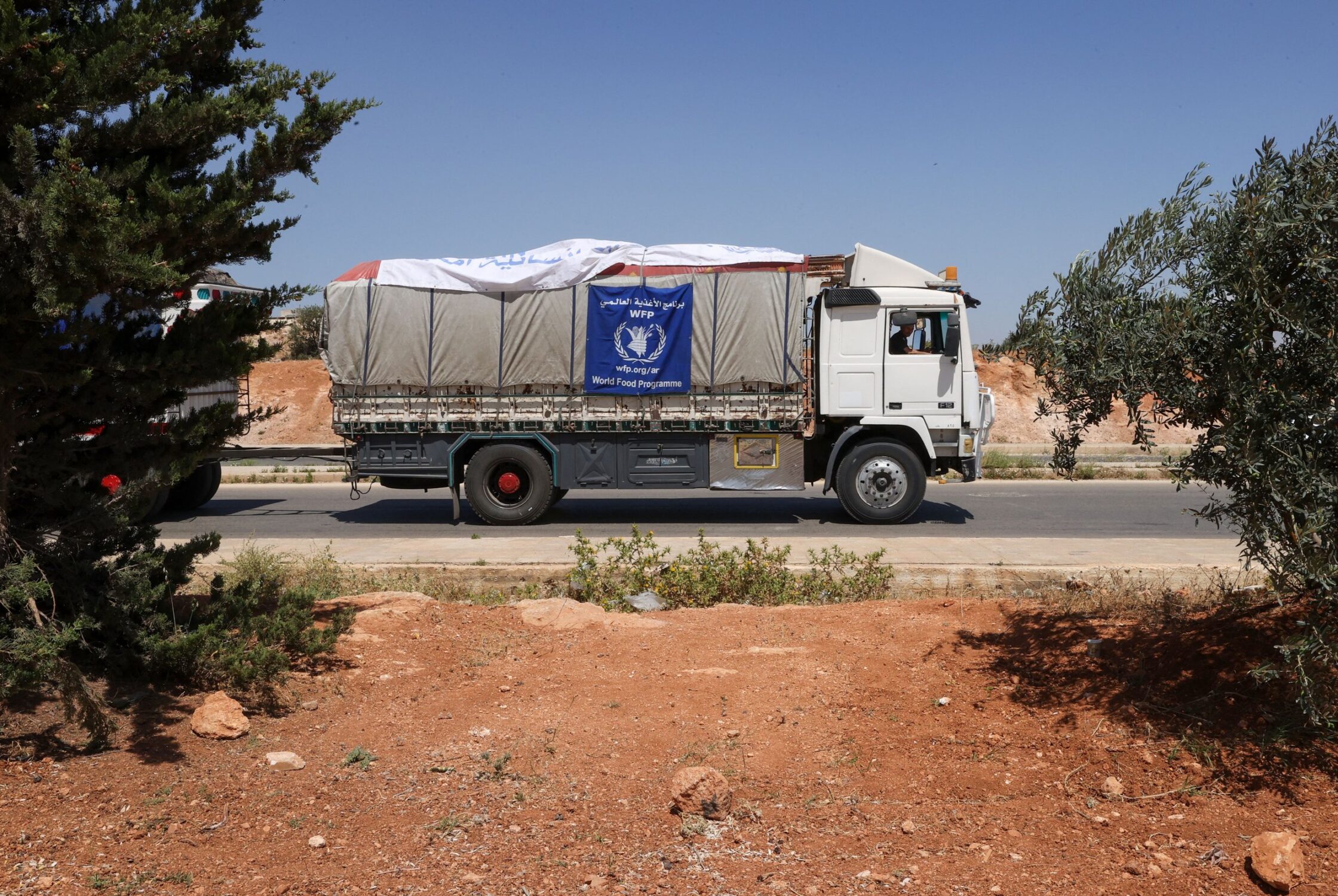
The United Nations announced the resumption of cross-border humanitarian aid via the Bab al-Hawa crossing between Turkey and Syria, extending operations for six months until January 13, 2025. This decision follows a series of meetings and communications between the Idlib-based Office of Humanitarian Action Coordination (HAC) and the UN.
The HAC confirmed the renewal, emphasizing their efforts in facilitating aid operations and securing the entry of more than 500 UN missions since September 2023. This extension comes amid concerns over the significant reduction in aid reaching northwestern Syria, impacting millions of civilians, and concerns of disruptions.
Humanitarian aid to northwestern Syria had dwindled significantly, with the Response Coordinators Team reporting that 60% of the region’s population was no longer receiving aid from the UN’s World Food Program (WFP). A survey conducted by the team revealed widespread dissatisfaction among civilians, many of whom had been removed from the aid entitlement list.
The survey, which included 21,843 beneficiaries (47% women and 53% men), highlighted fears of further reductions in aid. Over 19,000 respondents anticipated more cuts in future distributions, exacerbating the already dire humanitarian situation.
Stéphane Dujarric, spokesperson for the UN Secretary-General, stressed the critical nature of the extension for cross-border operations. “The extension is necessary for United Nations cross-border operations, which remain a lifeline for Syrians in the northwest of the country,” Dujarric stated.
Dujarric noted that the UN and partner organizations manage to reach over one million people monthly with essential assistance and protection services. However, he acknowledged that this figure is considerably lower than in previous years due to reduced funding.
In 2024, approximately 90% of UN aid trucks and 70% of UN missions to northwestern Syria utilized the Bab al-Hawa crossing. Despite these efforts, humanitarian organizations have reported a steady decline in aid deliveries due to funding shortages and escalating needs.
The Syria Response Coordinators team reported a significant decrease in aid this year. As of the current mandate, northwestern Syria received 241 UN aid trucks, including contributions from various UN agencies like the World Health Organization, the United Nations High Commissioner for Refugees, and the United Nations Children’s Fund.
The humanitarian situation in northwestern Syria remains critical. Over two million displaced people in Idlib and the Aleppo countryside face severe shortages of food, water, and healthcare. Continued internal displacement exacerbates these conditions, as civilians move in search of safety and basic services.
Humanitarian organizations struggle to provide adequate support amid funding deficits and escalating hostilities from the Syrian regime and Russia. These challenges put many lives at risk and hinder the delivery of essential aid. The resumption of aid through the Bab al-Hawa crossing is a crucial step in addressing these urgent needs. However, sustained efforts and increased funding are essential to prevent a deepening humanitarian crisis in the region.








